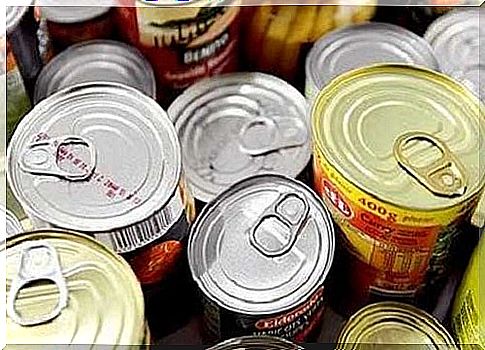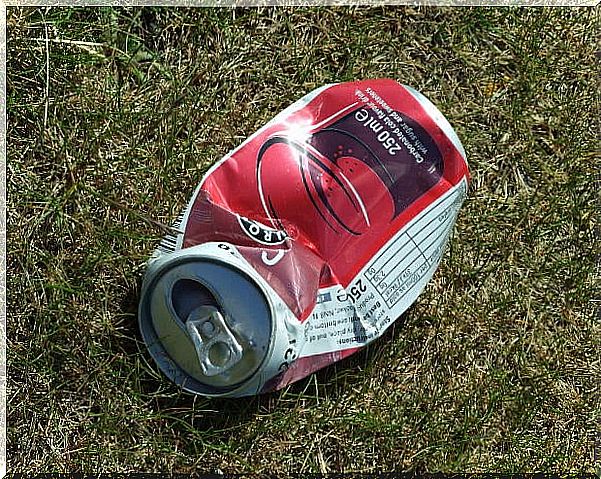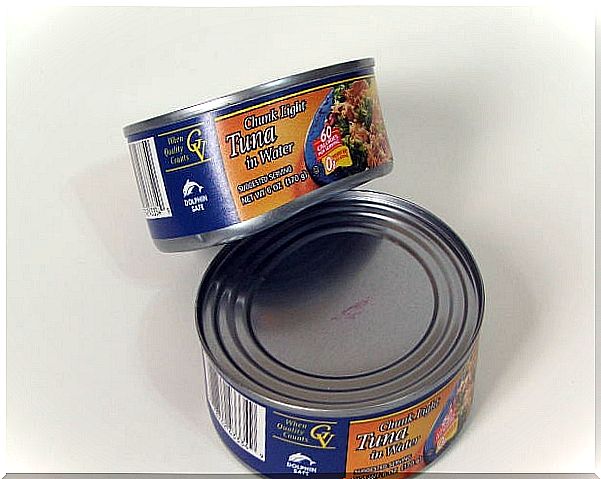The Dangers Of Consuming Canned Foods

A lot of the foods we find on the market are canned or packaged. Research indicates that the type of material used to store these foods produces a toxic compound that harms health.
In this article, we’ll talk about the dangers of consuming canned foods.
The cans have a special coating made with bisphenol A resins. But remembering this name is not important.
What we should really know is that this substance accumulates in our body and its effects can be bad.
Research by Harvard University revealed that people who consumed canned soups for five consecutive days had a large amount of bisphenol A in their urine.
Then, the levels of the substance were measured for another five days, without the compound being ingested, and no such substance was found.
Is bisphenol A toxic?
Bisphenol A is widely studied in the scientific community. A publication in the Journal of the Medical Association indicates that this compound is used to produce plastics, resins and cans.
In the United States, a report was published that showed the high levels of the compound in babies, children and fetuses.

Canada was the first country in the world to declare it as a toxic substance and the same happened in the European Union, where they banned its use in the production of bottles.
However, bisphenol A resins continue to be used in other products; such as the coating of metal cans that store food and beverages.
There is still not enough information to know exactly what all the harmful effects of the accumulation of bisphenol A in the body are.
Animal testing has been alarming. For example, the compound is known to be an endocrine disruptor, that is, it can alter the functioning of the hormonal system.
In addition, it is often associated with diabetes, cardiovascular disease and obesity.
So the problem is not so much the contents of the cans (although you also need to pay attention to that), but rather the contact food has with bisphenol A.
Thanks to this research, scientists are making it possible for the substance to be eliminated from canned products; or, even, no more food stored in this type of container is sold.

The risks of canned goods
In addition to cans, bisphenol A is present in plastic and certain vacuum-packed foods. The only containers that are safe are glass or paper (have you ever noticed how the taste of food varies depending on the container it is stored in?)
The synthetic chemicals used to package, store and process food are silent enemies. Nobody knows what they’re ingesting and what it can do to health. Furthermore, most of these compounds are not inert; so they can infiltrate the food without any problems.
People who consume a lot of canned food are more likely to be exposed to these substances. And, as stated earlier, they can cause obesity, hormonal changes, heart problems and diabetes.

Not much is known about it, nor what are the crucial stages of the substance once it is inside the body. What is known and confirmed is that cans contain toxic “popular” substances, such as formaldehyde, known to be carcinogenic. This type of substance (even if in smaller amounts) is also found in plastic bottles.
The dangers of tuna cans
There is no doubt that this is one of the most consumed foods, as it does not require cooking and can be added to a multitude of dishes.
The benefits of fish (because it contains Omega 3 fatty acids and phosphorus) are lost due to the mercury contained in the cans that store the tuna.
Mercury is a metal with toxic effects on the nervous system. In addition to being present in cans, it is known that in some areas where certain species of fish are caught, compost is also present.
This can increase the risk of myocardial infarctions, sensorineural changes, interference with neurological development (in the case of the fetus), etc.

The riches of coating aluminum cans
Most cans used to store food, sold in supermarkets, have a plastic coating known as epoxy resin, which is applied superficially.
This process is carried out to prevent food from reacting with its acids and eroding the material. The shape of the cans and the application of this coating aim to make the cans more durable.
Can poisoning, an old problem
Do you think canned food problems are recent? Then learn the story of John Franklin’s fateful Arctic expedition; in which many of the boat’s crew died from consumption of canned foods.
This was only discovered and confirmed years later, with different research and studies. The cause of death was lead poisoning, which was used to solder the tin cans.
There is a mythic background to this account, and the procedures for storing food have been changed; but it’s good to know that the problem with cans isn’t new.










